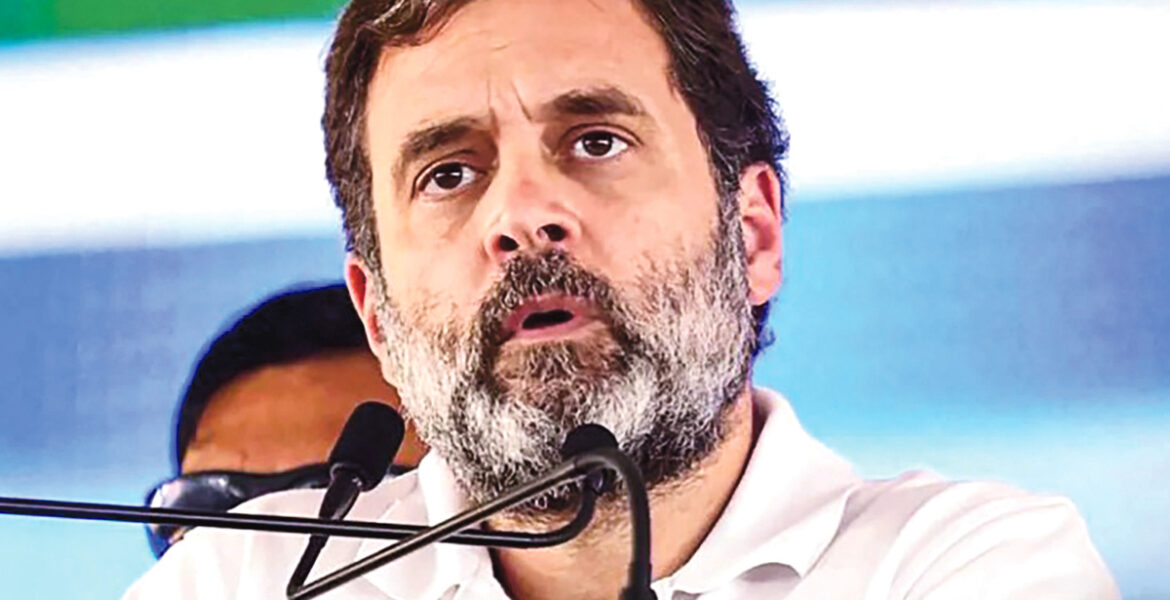India’s opposition leader Rahul Gandhi has been stripped of his seat in parliament and is facing two years in prison for allegedly defaming Prime Minister Narendra Modi. Gandhi has loged an appeal and is out on bail until a hearing on April 13. Fourteen opposition parties have banded together to petition the Supreme Court over the issue, arguing opposition politicians are being selectively targeted by federal investigative agencies. Many see this jail sentence for the face of the country’s largest opposition mark a new level of government control over the judiciary of the country.
The conviction and suspension from the Lok Sabha triggered a political controversy, leading to Rahul Gandhi filing an appeal against the verdict.
On April 13, the sessions court was set to hear Rahul Gandhi’s appeal. Meanwhile, Purnesh Modi, who filed the complaint against Rahul in 2019, condemned the Congress leader’s conduct while highlighting the severity of an MP violating laws. Purnesh Modi stated that if an MP violates any laws, it becomes a much more significant concern for society and the court.
The crux of the matter concerns Rahul Gandhi’s comment, where he questioned why all thieves share the Modi surname. The court deemed this statement defamatory, and Modi accused Rahul Gandhi of making similar statements that can defame and cause hurt under the guise of political criticism and freedom of speech.
As the Congress leader faces legal proceedings, the political landscape in India continues to be tense. Both the BJP and the Congress have traded barbs.
Legal experts believe there was haste in the process of delivering the verdict against Rahul and sentencing with the maximum possible terms.
While talking to British newspaper The Guardian, Gautam Bhatia, a lawyer and constitutional law expert, called the verdict against Gandhi “completely indefensible from any perspective”.
With the BJP commanding a huge parliamentary majority, MPs banned from voting against their own party, and the politicization of “autonomous” government bodies, as well as a largely stifled and compliant media, the judiciary is considered by many as India’s only remaining independent check on the power of the executive.
Although attempts by prime ministers to exert control over the judiciary are nothing new: both Jawaharlal Nehru and Indira Gandhi, India’s two most powerful past leaders, altered the constitution to gain more judicial control. In 2015, Modi made a similar attempt to give the government a say in judicial appointments, but that was struck down by the supreme court.
According to lawyers and experts, in recent years the Modi government has implemented a more covert method of coercing the judiciary, using the only power left – that of backdoor influence over the appointment, promotion and transfer of judges.
While appointments are technically made by a “collegium” of judges behind closed doors, the government can voice its concerns and it has to give a final warrant to approve any appointments. This so-called “pocket veto” is allegedly now routinely used by the Modi government to transfer or blockade the promotion of judges who are not seen as pro-government or are too “pro civil liberties”, and to push for the promotion of judges it sees as favorable to its interests.
“There is an attempt to control the judiciary through the appointment process,” said Madan Lokur, a former supreme court judge while talking to The Guardian. “While this may not have an immediate or visible impact, it will certainly undermine its independence in the medium term.”

